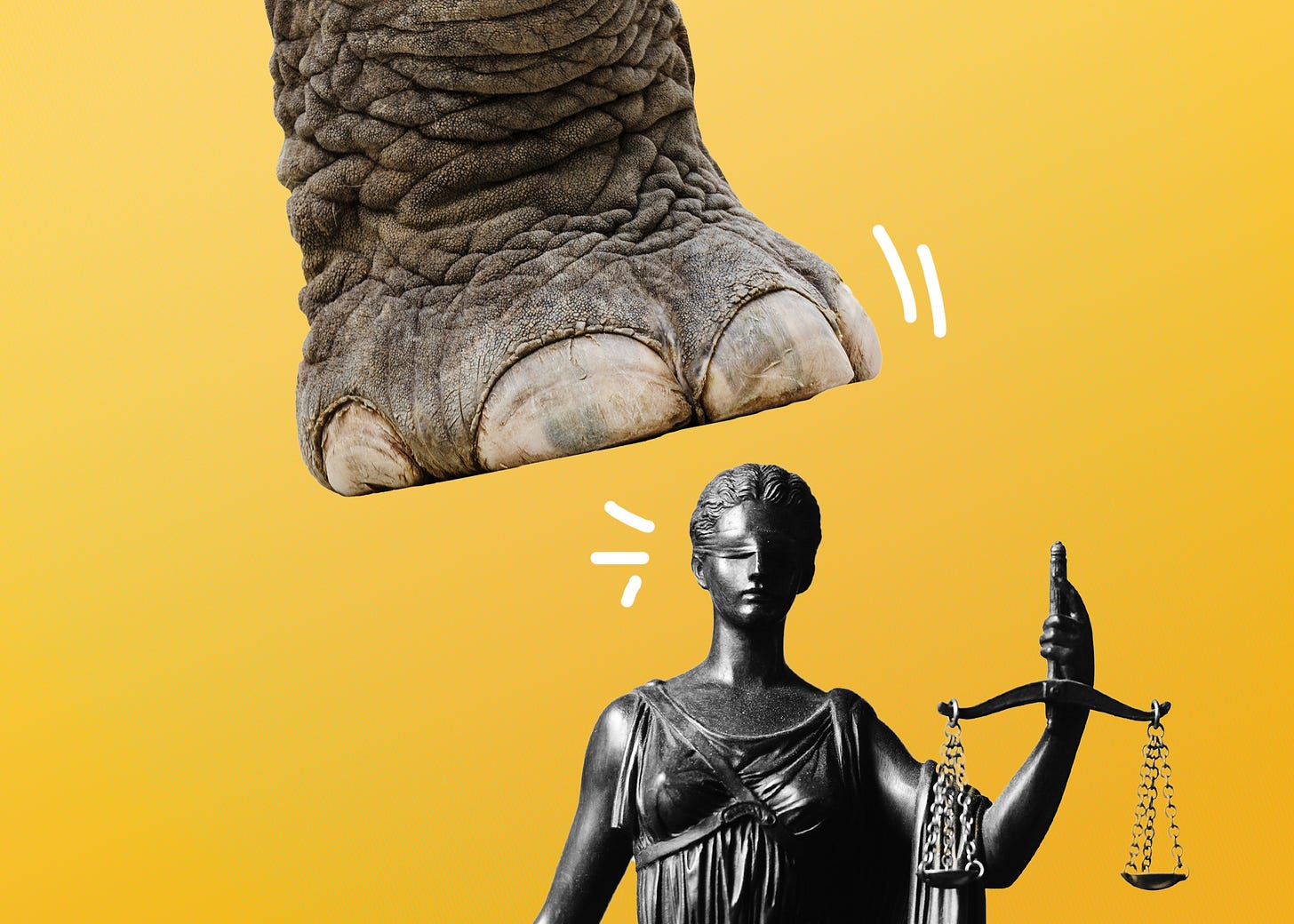The Party of Trump Will Not Participate in the Justice System
America’s latest challenge to the rule of law.
Reminder: I’m traveling today, so no livestream tonight.
1. Fealty
Well this is a new look from the party of Law & Order:
Prosecutors in Arizona refused to extradite a 26-year-old man accused of killing a woman at a New York City hotel this month because of what they said was the Manhattan district attorney’s lenient treatment of violent criminals.
Rachel Mitchell, the Maricopa County attorney in Arizona, said at a news conference on Wednesday that her team would not work with Alvin L. Bragg, the Manhattan district attorney who is expected to charge the man, Raad Almansoori, in the killing of 38-year-old Denisse Oleas-Arancibia.
After hotel workers on Feb. 8 discovered the body of Ms. Oleas-Arancibia in a rented room at SoHo 54, Mr. Almansoori flew to Arizona, New York police officials said on Wednesday. He was arrested there after stabbing a McDonald’s restaurant employee on Feb. 18. Mr. Almansoori has been in custody in Maricopa County since.
“Having observed the treatment of violent criminals in the New York area by the Manhattan D.A. there, Alvin Bragg,” Ms. Mitchell told reporters. “I think it’s safer to keep him here and keep him in custody, so that he cannot be out doing this to individuals either in our state, county, or anywhere in the United States.”
I’m sure that Ms. Mitchell is sincerely concerned about the public welfare. But in paragraph nine, the New York Times asks: But what if she wasn’t?
The gesture by Ms. Mitchell, a Republican who has held office since April 2022, is an extraordinary breach of criminal justice norms and appears to be a continuation of an effort by the party controlled by former President Donald J. Trump to embarrass Mr. Bragg. His office is set to try a criminal case accusing Mr. Trump of orchestrating the cover-up of a hush-money payment to a porn star in an attempt to conceal her story of an affair before the 2016 election.
I know. It’s inconceivable!
This Arizona stunt is not all entirely dissimilar from the games Texas’s governor and attorney general have been playing in Eagle Pass, where they have directed the Texas National Guard to use force to deny federal officials access to public lands. Or like the Florida stunt in which Gov. Ron DeSantis trafficked refugees from Texas to Martha’s Vineyard in fairly open violation of the law.
So far these are minor conflicts that can, we hope, be resolved through the court system. And we can take some solace in the fact that these seem to be cynical genuflections before the altar of Trumpism rather than deeply held beliefs about how America should be run.
But again we should wonder: What if they weren’t?
None of this is new. We have had grandstanding politicians and anti-law movements in America since the beginning.
There was Bloody Kansas. The Civil War, obviously. And in more recent history, too: In the late 1950s, various Southern politicians refused to comply with federal law in the wake of Brown v. Board’s verdict on racial integration. In 2000, Miami Mayor Alex Penelas refused to cooperate with federal authorities in the repatriation of Elián González.
And that’s to say nothing about the various private individuals who decided to challenge the legitimacy of federal of law in recent times, from Cliven Bundy to Ruby Ridge to Waco.
What is novel about the current challenge to our legal system is not that it has a figurehead—we have seen those before.
It’s that the current figurehead owns one of our two political parties. That this man will be his party’s presidential nominee for the third consecutive election. That he is openly campaigning against the rule of law, including the Constitution. And that he has at least a 50-50 chance of being elected president nine months hence.
Oh, and one more thing: At some point in the coming weeks, this scofflaw who is under multiple federal indictments may begin receiving classified intelligence briefings.1
In short: What makes this a challenge to the rule of law is that it is not a series of lone wolves. It is both the product of, and fuel for, a serious political movement that views the rule of law as inconvenient and instead prefers a system of rule by law.
We tend to carry an idealized view of political movements in America, assuming that the arc of history bends toward justice. And sometimes this is true. But not every political movement is like the civil rights movement. You can have an authoritarian movement and it can succeed. We know this, because we have seen such movements and witnessed their success in many times and places.
I have said it before and I will say it again: America is walking into a crisis this November.
If Trump wins the election, we will have a president quashing ongoing criminal trials against himself.
If Trump loses, he will again claim that he was cheated and will try to overturn the result, first through legal and then through extralegal means.2 This latest attempt will dovetail with his ongoing challenge to the rule of law itself. And it will likely provoke more genuflections like the ones currently underway in Arizona and Texas.
2. Intel
I mentioned this on The Next Level podcast yesterday, but I want to unpack it a bit here.



